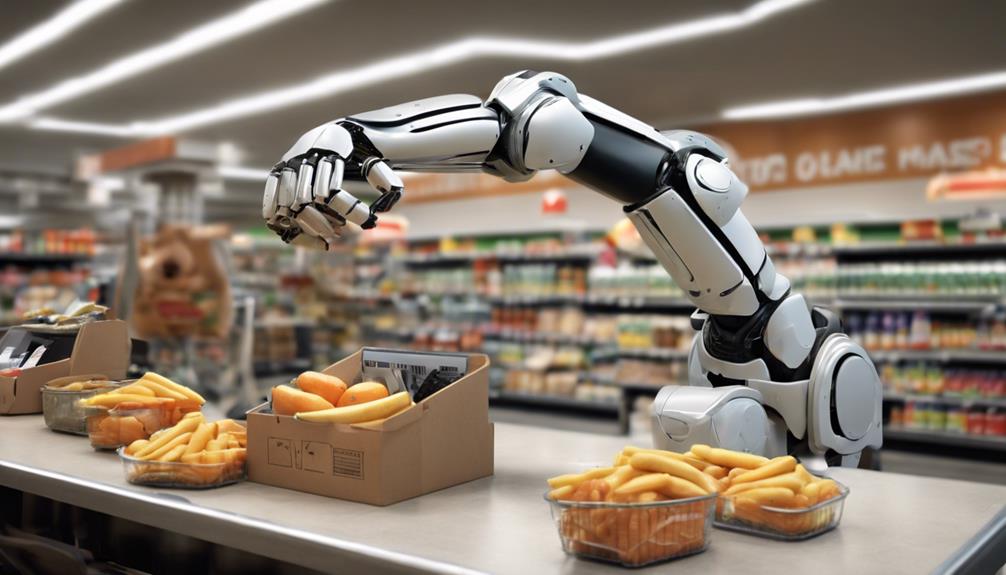As artificial intelligence continues to advance, professionals in various industries are growing more concerned about which roles could be replaced by AI automation. The intersection of technology and the labor force presents a variety of challenges and opportunities, with certain jobs facing potential obsolescence while others stand to benefit from the integration of AI.
Understanding the nuances of this transformative shift is crucial for individuals and organizations alike as they navigate the complexities of an increasingly digitized world. The evolving landscape of work demands a proactive approach towards skill development and adaptation to ensure relevance in the face of AI's rising prominence.
Key Takeaways
- AI will automate traditional tech roles, shifting towards specialized skills.
- Media and content creation will see efficiency gains with AI tools.
- Legal professions will boost efficiency but require human judgment.
- Finance roles demand proficiency in managing AI-driven systems.
Impact on Tech Jobs
The advancement of AI technologies, such as ChatGPT, has significantly impacted the tech industry by enhancing efficiency and potentially replacing traditional tech roles with automated solutions. AI tools like ChatGPT excel at data processing and code generation, often outperforming humans in accuracy and speed within tech industry roles. This trend has led tech companies to consider the possibility of using AI to streamline operations and reduce the need for as many human employees, potentially replacing software engineers in some tasks.
As AI continues to evolve, the skills and roles required in the tech industry may shift towards more specialized areas that complement AI capabilities. While AI can handle repetitive tasks and data-driven processes effectively, human creativity, problem-solving skills, and strategic thinking remain crucial in areas where AI tools like ChatGPT may not easily replicate human intuition. Therefore, the integration of AI in tech jobs necessitates a reevaluation of skill sets and job roles to ensure a harmonious balance between AI-driven automation and human expertise.
Automation in Media Industry

Automation technologies have revolutionized operational processes in the media industry, reshaping content creation and audience engagement strategies. In this digital age, AI plays a crucial role in transforming how media companies operate and connect with their audiences.
- AI-generated content: Tools like ChatGPT are efficient at producing written content and understanding text-based data in the media industry, offering new possibilities for content creation.
- Content creators: While AI can assist in generating article outlines and summarizing documents, the majority of work done by content creators is not easily automatable, highlighting the continued need for human creativity and expertise.
- Social media management: AI applications are being explored for tasks such as content curation, social media management, and personalized audience engagement, streamlining processes and enhancing user experiences.
- Efficiency and data analysis: AI advancements focus on improving efficiency, enhancing data analysis capabilities, and optimizing content creation workflows, enabling media companies to adapt to changing consumer demands and market trends effectively.
AI's Influence on Legal Professions
AI's impact on the legal profession is evident in its ability to replicate tasks traditionally performed by paralegals and legal assistants, particularly those focused on language-oriented roles. Legal professionals can leverage AI to enhance their work by synthesizing information for legal briefs, thereby improving efficiency in the legal process. While AI can assist in various legal tasks, the necessity of human judgment and expertise remains paramount to prevent complete replacement.
AI tools are revolutionizing legal work by boosting efficiency and accuracy, especially in tasks like legal research and analysis. The integration of AI in the legal field emphasizes the importance of specializing in areas where human judgment and expertise are irreplaceable. By integrating AI technologies, legal professionals can streamline their work processes, allowing for more effective utilization of time and resources while maintaining the essential human touch required in the legal profession.
As AI continues to advance, legal professionals must adapt by embracing these technological advancements to enhance their expertise and provide more effective legal services.
Changing Landscape of Finance Roles

In the evolving realm of financial services, a notable shift towards advanced strategic roles is underway as artificial intelligence streamlines routine accounting tasks. This transformation in finance roles is driven by the increasing capabilities of AI tools, prompting professionals to focus on financial analysis and strategic consulting rather than mundane accounting duties.
To adapt to the changing landscape, finance professionals are honing their skills in managing AI-driven systems efficiently. Moreover, specializing in digital banking solutions and cybersecurity has emerged as a lucrative opportunity within the finance sector, requiring a deep understanding of technological advancements and their implications for the industry.
It is crucial for individuals in finance roles to enhance their proficiency with AI tools to remain competitive in the market and prepare for potential consequences of the ongoing technological revolution.
Transformation of Customer Service Jobs
The progressive integration of AI technologies in customer service operations is reshaping the traditional roles and responsibilities within the sector, ushering in a new era of efficient and personalized interactions for businesses and consumers alike.
AI-powered chatbots, such as ChatGPT, are revolutionizing customer service roles by automating routine tasks, thereby enhancing response times and overall efficiency. Through AI tools, customer service representatives can now provide faster solutions and deliver personalized responses to customer inquiries, ultimately improving problem resolution and boosting customer satisfaction levels.
This transformation allows for a shift towards more complex and personalized customer interactions, as AI streamlines processes and empowers professionals to focus on high-value tasks. By leveraging AI in customer service, businesses can meet the evolving demands of consumers while driving operational excellence and achieving higher levels of customer satisfaction in this digital age.
Frequently Asked Questions
Which Jobs Are Likely to Be Replaced by Ai?
AI is poised to automate various job roles, particularly in white-collar professions. Occupations like management consultants, financial managers, and accountants are at risk. AI chatbots can replace roles in sales, law, psychology, teaching, and trading.
What Jobs Are AI Proof?
Certain roles, like those demanding high emotional intelligence, creativity, and critical thinking, are AI-proof. Jobs such as human resource managers, sales managers, writers, and software developers are less susceptible to AI replacement due to these unique qualities.
What Jobs Will Be Gone by 2030?
By 2030, various jobs susceptible to AI automation include those in transportation, administration, production, and services. Routine tasks such as data entry and assembly line work face high risk. Upskilling and adapting to new competencies are crucial for navigating this evolving job landscape.
What White Collar Jobs Are Safe From Ai?
White-collar jobs requiring human-centric skills like empathy, creativity, and critical thinking, such as human resource managers, sales managers, and event planners, are deemed safe from AI replacement. Embracing emotional intelligence and upskilling is vital for career sustainability.
Conclusion
In a world dominated by artificial intelligence, the future of employment is a battleground where machines reign supreme. Tech jobs face extinction, media industries are automated, legal professions are under siege, finance roles are evolving, and customer service jobs are transforming beyond recognition.
The relentless march of AI threatens to engulf traditional job roles, leaving a trail of disruption and uncertainty in its wake. The only certainty in this AI-driven world is change, as humans strive to adapt and survive in the face of technological upheaval.









